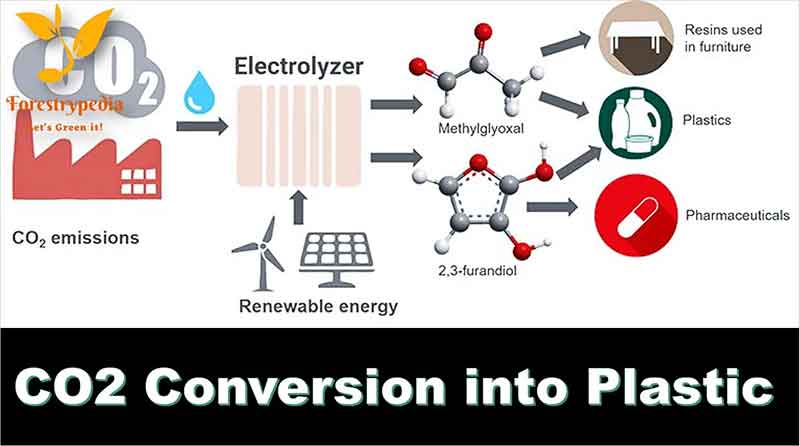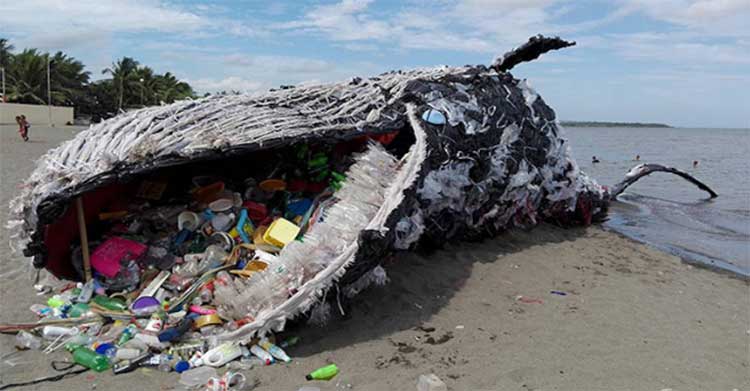One year after India banned nineteen single-use plastic items for tackling plastic waste, the situation on the ground tells us a different story. Banned single-use plastic items are found to be available everywhere in most urban areas in India.

Ministry of Environment, Forest & Climate Change (MOEF&CC), through a notification in 2021, prohibited the Manufacture, Import, Stocking, Distribution, Sale and Use of the following Single Use Plastic items (i) Earbuds with plastic sticks, (ii) Plastic sticks for balloons, (iii) Plastic flags, iv) Candy sticks, (v) Ice cream sticks, (vi) Polystyrene (Thermocol) for decoration, (vii) Plates (viii) Cups, (ix) Glasses, (x) Forks, (xi) Spoons, (xii) Knives, (xiii) Straws, (xiv)Trays, (xv) Wrapping/ packing films around sweet boxes, (xvi) Invitation cards, (xvii) Cigarette packets, (xviii) Plastic / PVC banners less than 100 microns, (xix)Stirrers, and the ban came into effect from July 1, 2022.
Since single-use plastic items are believed to have low utility and high littering potential, The ban aimed to curb plastic pollution. Similar bans have been in force in bits and parts across the country for a while now. The Central Pollution Control Board (CPCB) informed a bench headed by the National Green Tribunal (NGT) Chairperson Justice A. K. Goel in 2019 that 18 states/ UTs had imposed a complete ban on plastic carry bags/ products. Besides, five states, namely Andhra Pradesh, Gujarat, Jammu & Kashmir, Kerala and West Bengal, have imposed a partial ban on plastic carry bags/products at religious/historical places.
The Ban cast a significant impact on the existence and operation of various professions and industries. In this article, we explore the positive and negative impact of the ban on nineteen single-use plastic items and how far the nation has achieved its purpose.
A slew of activities started as soon as the Ban came into force on the 1st of July. Control rooms were set up by the respective state gov’t to monitor the implementation of the Ban and receive all complaints related to the violation of the same. Urban local bodies like Municipal Corporations started taking action on the defaulting units according to their bylaws.
Several industrial units that were into manufacturing and sale of plastic carry bags and packaging materials were given closure notices along with hefty penalties imposed on them. Penalties were imposed under the Guidelines for EC assessment prepared by CPCB. However, the power to take punitive action rests with urban local bodies, and the state pollution control boards and penalties may vary from state to state.
“I had my manufacturing unit where multipurpose plastic bags were manufactured and sold. As the Ban came into force, I had to pay a hefty fine and shut down the unit. I had to let go of several workers who became jobless.” Said Anand Kumar(name changed on request), who used to own a manufacturing unit in one of the leading Industrial zones in Delhi.
Street vendors and small business owners are directly affected by the Ban on Single-Use Plastic items. They earn their livelihood by selling on the streets, and the vast majority of them use plastic carry bags. At present lack of viable and economical alternatives to Single-Use Plastic items is taking a toll on their earnings. The cloth bags available in the market are way too expensive alternatives compared to plastic bags. “I am a street vendor, and I buy plastic bags because one plastic bag costs INR 1, whereas a cloth bag costs INR 7-8 per bag. It is way too expensive and unsustainable for me economically,” Says Pankaj (name changed on request), who sells vegetables on the streets of South Delhi.
The food vendors and small restaurant owners also expressed concern that the cost of alternatives was more than double that of plastic. “Earlier, we used plastic containers to deliver food items, but with the ban coming into effect, we are left with no option but to comply with the notification and opt for paper containers which are expensive compared to the plastic version. It is hitting hard on our pockets,” Explains Chandan (name changed on request), who runs a small eatery in a busy industrial pocket in South East Delhi.
Interestingly, the Ban is silent on the prohibition being extended to companies using single-use plastic polymers like multi-layered plastics (MLPs) for packaging that often are found scattered in the streets, drains, waters bodies or, at best, in dump yards. Laxman (name changed on request), a street vendor who sells coconut water, found it challenging to comply with the ban on using straws made of plastic and opt for paper versions overnight. He says,“ The customers now ask only for paper straws. This left me with no option but to buy paper straws only despite it being quite expensive compared to the plastic version.” At the same time, companies in India that sell packaged fruit juices took their own time to convert the plastic straw to a paper version to comply with the prohibition notification.
The organized sector is found to be more prepared to deal with the ban and switch to alternatives compared to the unorganized sector and small shop owners, who seem hassled and unprepared, especially regarding the cost of alternatives to single-use plastics. Only supermarkets, big grocery stores and malls have started using paper and cloth bags to some extent.
In certain affluent pockets in metros, the residents even opted for sustainable clothing in place of plastic. “There is a strong awareness and 100 per cent participation among my neighbours to lead a plastic-free life,” says Shiladitya Som, a resident of an affluent colony in Bengaluru.
Initiatives taken by Union Government since last year
A National Level Taskforce has also been constituted by the Ministry for Environment, Forest and Climate Change, and thirty-six States/UTs have constituted a Special Task Force under the chairpersonship of the Chief Secretary / Administrator to effectively implement Plastic Waste Management Rules, 2016. State Pollution Control Boards (SPCBs) and Pollution Control Committees (PCCs) were directed to revoke/modify consent/registration issued to banned Single Use Plastic (SUP) producers, and customs authorities have been asked to stop the import of banned Single Use Plastic (SUP) items.
The Union Government clarified in Loksabha on December 12, 2022, that three online platforms have been developed to monitor the ban on Single-Use Plastic items and Plastic Waste Management in India. These platforms are as follows:
- A National Dashboard to monitor the implementation of the action plan,
- CPCB Monitoring Module for Compliance on Elimination of Single-Use Plastic,
- CPCB Grievance Redressal App.
The Union Government is confident that these online platforms will empower citizens to help curb the plastic menace.
Road towards alternatives
Since the Ban on nineteen Single Use Plastic items is here to stay, we need to create an inclusive platform that will provide decent work for all, support to earn a livelihood and gradually pave the way for a just transition towards a strong and vibrant future.
The Guidelines on Extended Producers’ Responsibility (EPR) on plastic packaging will promote the development of new alternatives to plastic packaging. But this is unlikely to materialise in reality since, under the same EPR rule, large FMCG companies like Hindustan Unilever and Nestle have been given almost a free pass to continue to use single-use plastics like MLP.
To promote easy transitioning from banned single-use plastics products, the Central Pollution Control Board (CPCB), State Pollution Control Boards (SPCBs), Pollution Control Committees (PCCs) along with the Ministry of Small Micro and Medium Enterprises and Central Institute of Petrochemicals Engineering (CIPET) and their state centres have started providing the MSMEs with technical assistance for manufacturing alternatives. However, no information is available in the public domain from CPCB/SPCBs, MSMME and CIPET regarding technical assistance or financial assistance provided to date.
The pollution-control body under the Ministry of Environment, Forest and Climate Change also encourages the use of ‘compostable plastics’. These are plastic items that undergo degradation by biological processes and produce carbon dioxide, water, inorganic compounds and biomass during composting. The compostable plastic has been cleared for bin liners, paper coating on disposable glasses, t-shirts and retail bags, cling wraps and food packaging of perishables, mulch films, netting and thermoforming.
The future full of promise
The most difficult part is to build supply chains that are free from single-use plastics of all types because once the plastic enters the system, there is no way to manage it, as is evident from developed countries exporting shiploads of their plastic waste to developing countries to be managed here. For this, the government has to fund initiatives at the grassroots, for example, through the various street vendors Unions, to foster innovation and build sustainable models that are truly zero waste.
Partha Pratim Ray primarily contributes news stories to leading global online newspapers like Transcontinental Times (https://www.transcontinentaltimes.com/) and Rated News (https://ratednews.com/) and writes Features as a Research fellow for leading environmental Organisations. Partha Pratim contributes news on Sports, Travel & Tourism, Art & Culture, Climate Change and International Relations. Email: [email protected]

















































